Below information is from our latest Application Note on how to connect and reverse our fixed-speed, 3-wire and 4-wire reversible, AC single-phase gearmotors and motors. We conclude our series of AC application notes with four examples of what types of reversing switches an engineer or technician can use to reverse our stock gearmotors.
How to Wire an Optional Reversing Switch to a 3- or 4-wire AC (PSC) Motor or Gearmotor (115VAC/60Hz Models)
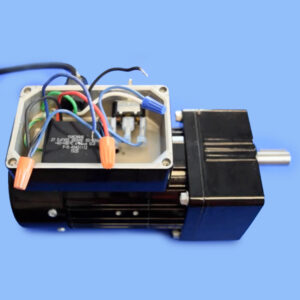
These connection diagrams show how to wire an optional switch to reverse the direction of a 3- or 4-wire Bodine permanent split capacitor (PSC) motor/gearmotor. All the wiring diagrams use variations of a double throw switch, with a center-off position. The purpose of the center-off position is to bring the gearmotor to a complete stop before reversing its direction of rotation. This is necessary to prevent gearing damage. Table 1 (below) shows examples of switch manufacturers, part numbers and specifications recommended for use with Bodine products.
——
To watch our How-To video on how to add a manual reversing switch to a Bodine 3-wire reversible PSC gearmotor or motor, click here. Our video for 4-wire reversible PSC motors is linked below.
3- Wire-Reversible Bodine AC Motor or Gearmotor
Examples 1 & 2 show how to connect a single- or double-pole switch to our 3-wire, PSC, fixed-speed AC gearmotors or motors.
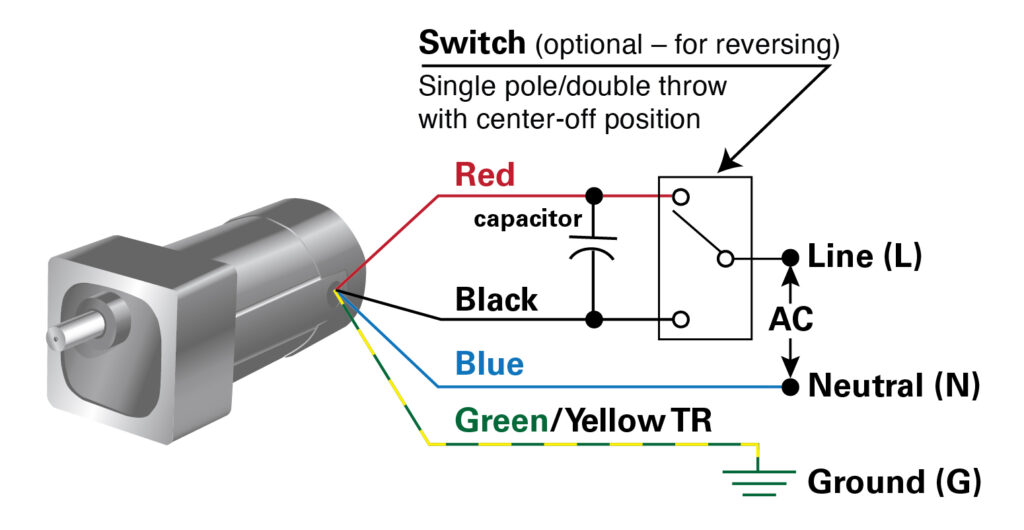
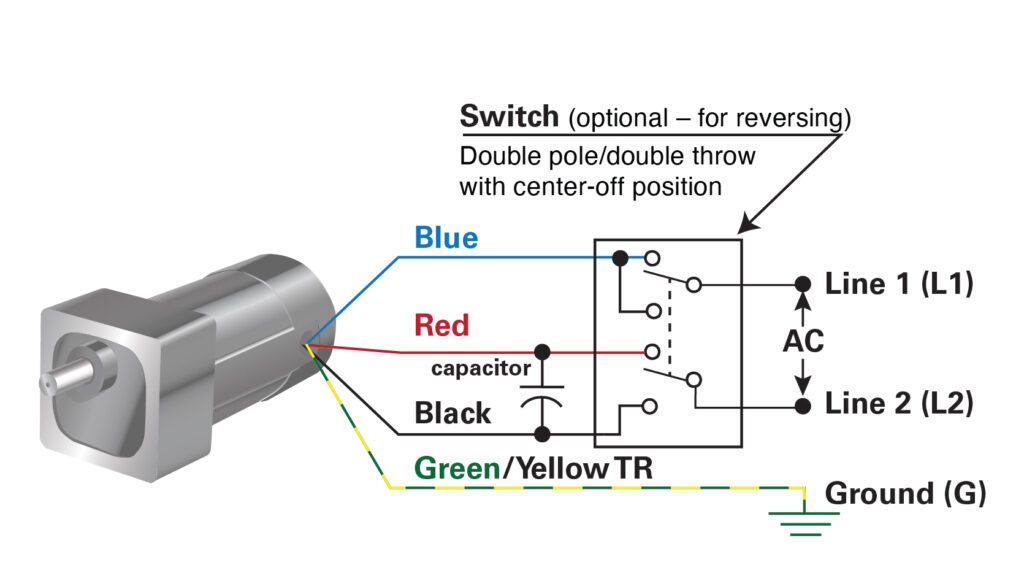
4-Wire-Reversible Bodine AC Motor or Gearmotor
Examples 3 & 4 show how to connect a three- or four-pole switch to our 4-wire, PSC, fixed-speed AC gearmotors or motors.
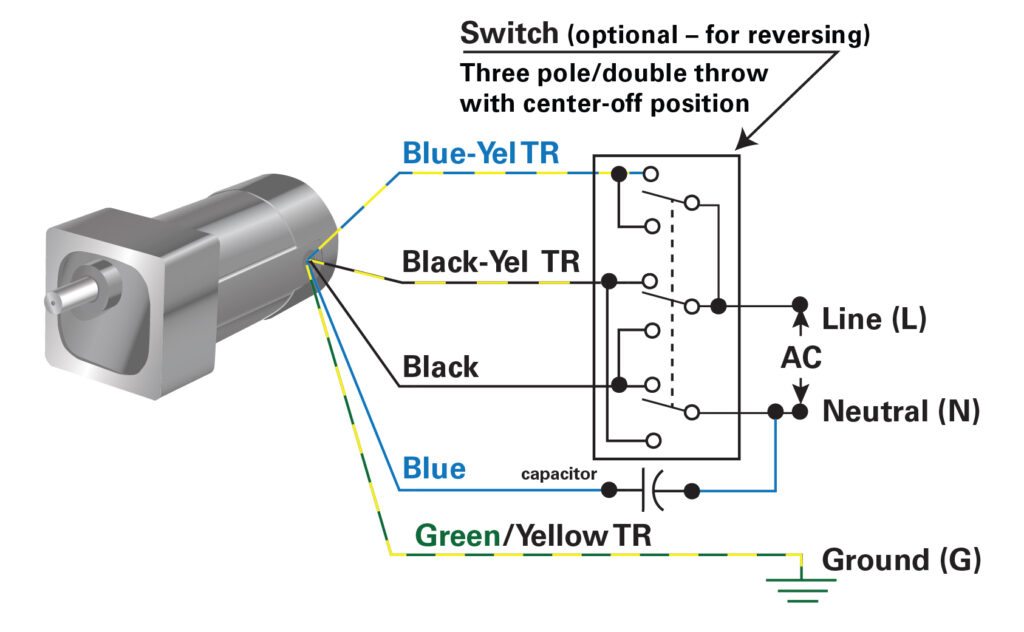
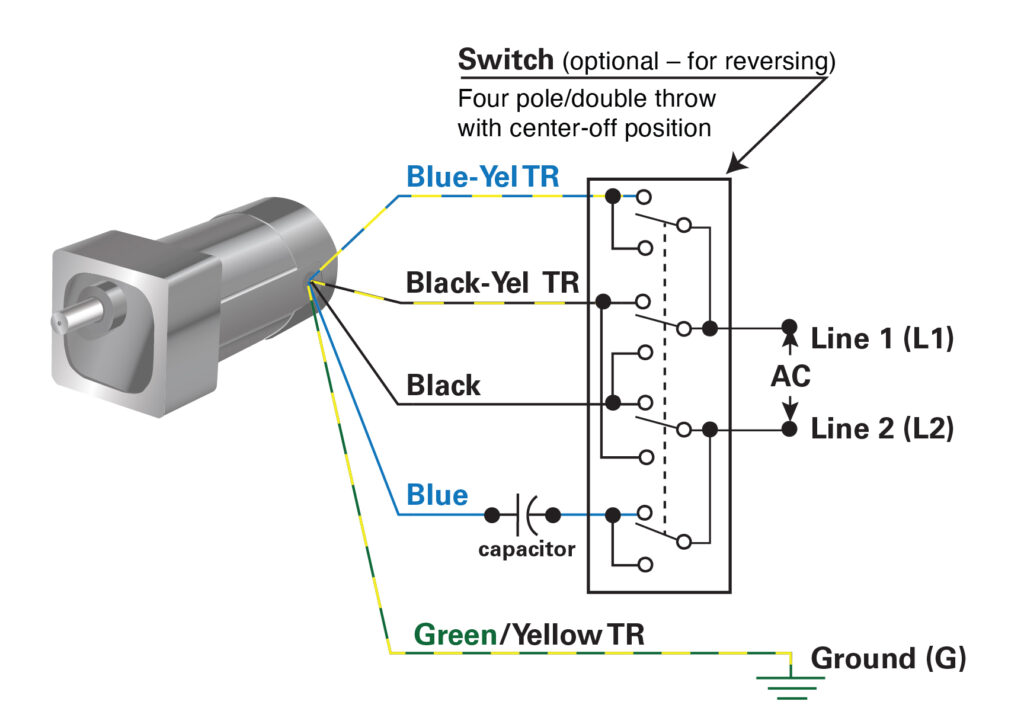
| Table 1: Switch Specification Examples | |||||
|---|---|---|---|---|---|
| Figure | Switch Type | Manufacturer and Part Number | Amps | Operation | Terminals |
| Bodine 3-wire Gearmotor/Motor | |||||
| 1 | Single Pole, Double Throw | Carling Technologies, 2FC53-73-TABS | 15A @125VAC | On-Off-On | Quick Connect |
| 2 | Double Pole, Double Throw | Carling Technologies, 2GM51-73 | 15A @125VAC | On-Off-On | Quick Connect |
| Bodine 4-wire Gearmotor/Motor | |||||
| 3 | Three Pole, Double Throw | Carling Technologies, HM251-73 | 15A @125VAC | On- Off-On | Quick Connect |
| 4 | Four Pole, Double Throw | Carling Technologies, IM251-73 | 15A @125VAC | On- Off-On | Quick Connect |
Connection diagrams are available from our web site.
How-To Connect a Three-Pole, Double-Throw toggle switch to Reverse a 4-Wire Reversible 115VAC, PSC gearmotor or motor.
Several jumper wires are required to connect a reversing switch to one of our 4-wire-reversible, permanent split capacitor (PSC) gearmotors or motors. For our demo, we are using a Three-Pole, Double-Throw toggle switch with Center-Off position. (Carling brand switch with quick-connect tabs, rated for 15 Amps; Carling part number HM215-73 — purchased from DigiKey).
To watch our How-To Video for adding a reversing switch to a 4-wire, PSC gearmotor, click here.
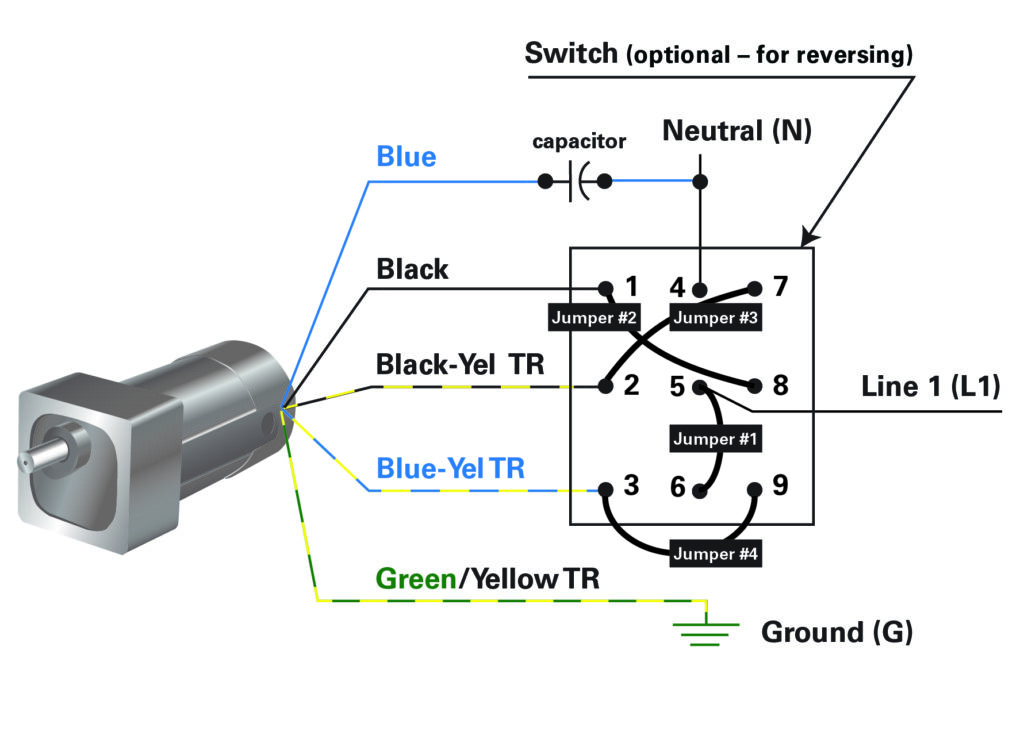
Connect the incoming power line (hot lead) and one side of a jumper lead and connect it to switch terminal 5, then connect the other end of jumper #1 with the switch terminal number 6, see diagram.
Connect the black motor lead with one side of a jumper lead and land on switch terminal 1, connect the other side of jumper #2 with switch terminal 8, see diagram.
Connect the black/yellow tracer motor lead with one side of jumper #3 lead, and connect it to switch terminal 2, then connect the other side of jumper#3 to switch terminal 7.
For the last jumper, connect the blue/yellow tracer lead with one side of our jumper #4 lead, and then connect it to terminal 3 of the switch, then connect the other side of jumper #4 to terminal 9 of the reversing switch.
The blue motor lead is wired to one side of the capacitor (non-polarized) and the other side of the capacitor is crimped together with the neutral line, and then connected to switch terminal number 4.
Copyright Bodine Electric Company © 01/2023. All rights reserved.